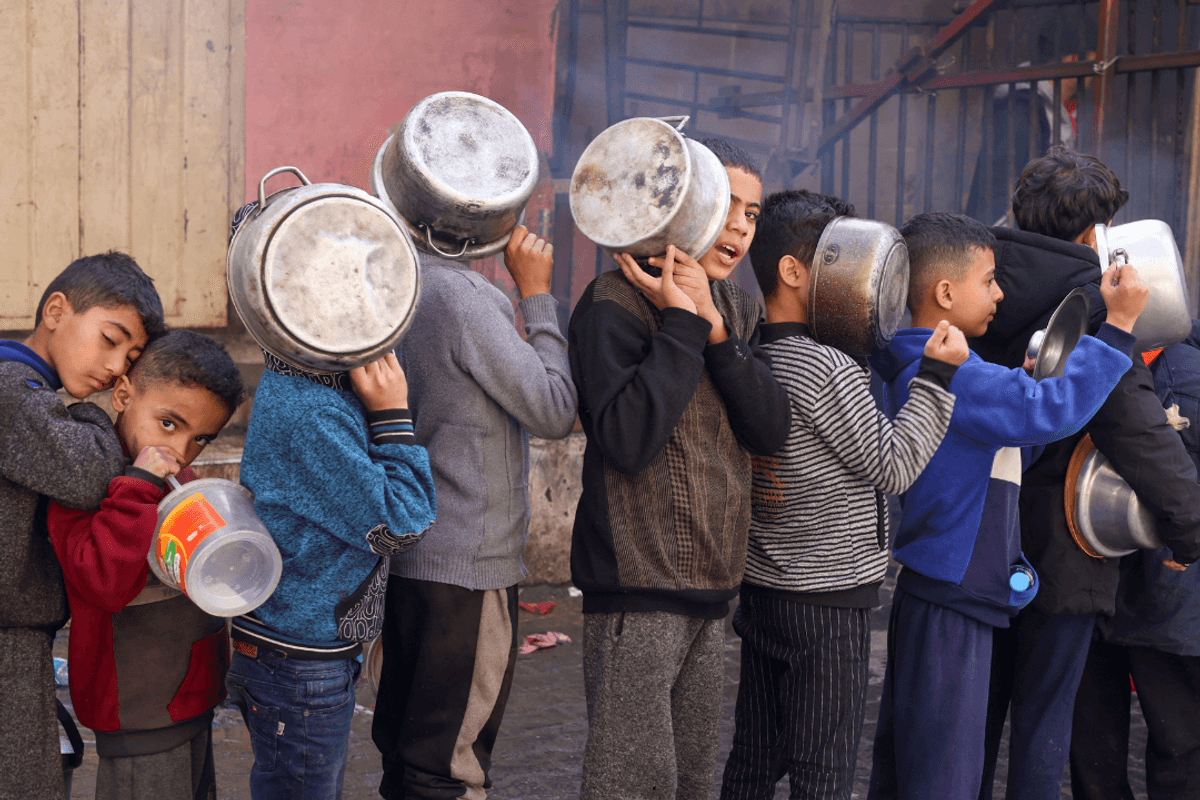733 million face chronic hunger as FAO chief calls for urgent action on food security
FAO urges global leaders to address conflict, climate change, and inequality to ensure stable food systems
Business Desk
The Business Desk tracks economic trends, market movements, and business developments, offering analysis of both local and global financial news.

Palestinian children carry pots as they queue to receive food cooked by a charity kitchen, amid shortages in food supplies
Reuters/File
As 733 million people worldwide struggle with chronic hunger, Food and Agriculture Organization (FAO) Director-General Qu Dongyu has called for urgent action to ensure food security, peace, and stability, addressing G20 Foreign Ministers in Johannesburg.
With 2.3 billion people experiencing food insecurity and 2.8 billion lacking access to healthy diets, Qu warned that food security is not just a policy challenge but a matter of human dignity and global stability.
One of the greatest threats to food security is conflict, affecting regions from Ukraine and Gaza to the Sahel and Haiti. In countries such as Chad, the Democratic Republic of Congo, Mali, Niger, Nigeria, and Sudan, deteriorating agrifood systems and poor policy decisions have escalated tensions between farmers and pastoralists competing for scarce resources, he stated.
Beyond conflict, climate change continues to disrupt global food production. Rising temperatures, extreme weather events, and shifting disease patterns are making it harder for farmers to produce food, accelerating migration and economic instability.
“These challenges threaten our ability to ensure stable agrifood systems and risk deepening global inequalities,” Qu emphasized.
FAO highlighted that weaknesses in agrifood systems are rooted in inequality, including unequal access to innovation, technology, and natural resources. Without intervention, global food security will continue to deteriorate.
Qu stressed the importance of international trade in ensuring that food moves efficiently from surplus to deficit regions. He highlighted the Agricultural Market Information System (AMIS) — a G20 initiative hosted by FAO since 2011 — as a key mechanism for enhancing market transparency and policy coordination.
With agrifood systems supporting over 3.8 billion people worldwide and employing 1.2 billion, FAO emphasized that ensuring food security is not just an economic necessity but a moral imperative.
“Food security is not just about policy — it is about peace, stability, and human dignity,” Qu said. “We must act now to secure political commitment and investment in ensuring nutritious and healthy food for all.”
As global hunger continues to rise, FAO urges governments and international institutions to take decisive action to address food insecurity, climate resilience, and economic inequality before the situation worsens.







Comments
See what people are discussing